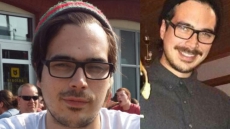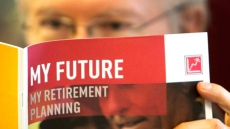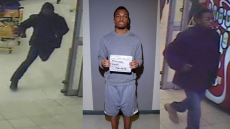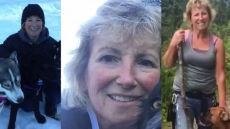Imagine taking a doctor into your confidence in a hospital emergency room, only to discover that someone else is recording the conversation on a smartphone. One of British Columbia's busiest hospitals is wrestling with that very problem, and the someone else happens to be the local police.
Doctors at Royal Columbian Hospital in New Westminster have complained that local police and RCMP officers are routinely recording conversations without consent between doctors and patients who are considered a suspect in a crime.
"They will be present when we are trying to question the patients and trying to obtain a history of what happened," said Dr. Tony Taylor, an emergency physician who practises at the hospital.
"They have now recently started recording these conversations and often they will do that unannounced, which has a number of implications around confidentiality and consent."
Police are not an uncommon — and usually not an unwelcome — sight in Canadian hospitals. They typically accompany victims of crime, and sometimes suspected criminals who need urgent medical care.
The law also requires them to bring in patients in psychiatric distress, or who pose a risk to themselves or others. Sometimes, officers come to collect evidence like blood alcohol samples. In seven provinces, hospitals are required by law to notify the police when a gunshot victim comes looking for medical help.
In contrast to what is happening at Royal Columbian, physicians across the country say police seldom interfere with their work. Indeed, many doctors acknowledge that police need to be in hospitals to protect them and their patients.
As Dr. John Ross, professor of emergency medicine at Dalhousie University in Halifax, puts it: "We've had people shot who were not killed but were obviously injured, and the attempted murderers then showed up several hours later and ended up walking through the department looking to complete the job."
The Halifax Infirmary now has a lockdown process that involves posting police at entrances as soon as a crime victim is admitted to the emergency department.

"The ER is supposed to be always open," said Ross. "Yet, there's an element of society that you don't want coming in."
At Royal Columbian, police are a daily fixture and doctors say the problem has worsened in the last 18 months.
While hospital management is addressing the problem by meeting with local police forces, doctors also recently reached out to Doctors of BC, the provincial medical association. The issue is due to be discussed at a meeting on Tuesday of the association's section of emergency physicians.
"I am somewhat shocked to hear of the possibility that RCMP officers or New West police would tape-record conversation without the expressed consent of both physician and patient," said Dr. Gord McInnes, the section's co-president.
New Westminster police take the view that recording conversations is critical to their investigations.
"The interactions between the investigating officers and suspects are sometimes documented using a digital recorder, so as to ensure they are accurately documented, as well as to ensure that the suspect's charter rights are protected," said Sgt. Jeff Scott, a police spokesman.
Officers are careful not to interfere with medical care, Scott said.
"Regardless, the individual's medical treatment is of the utmost importance, and any investigative need for our officers to interact with the patients will be secondary to the doctor's need to treat them."

The RCMP is not aware of any complaints about recordings at Royal Columbian but confirmed that police investigations take place in hospitals.
"We will also record the statements taken in a hospital facility, as case law does require us, when able, to capture a record of statements given to police," said Dawn Roberts, a spokeswoman for the RCMP in B.C.
"Doctors and nurses are the medical advocates for the health, treatment and recovery of a patient but they are not the legal advocates for the patient that would let them interfere with a police investigation."
As far as doctors at Royal Columbian are concerned, the police are getting in the way of patient care.
Patients tend to clam up when police officers are present, said Dr. Taylor. "That makes it difficult to get those kind of history details that are critically important," he said.
The hospital said it permits police investigations.
"While patient privacy is of utmost importance to us, we do not interfere with the investigations of police officers," said Tasleem Juma, a spokeswoman for Fraser Health. "As a result, if they consider recording an essential component of their investigation while in hospital, we do not interfere with this process."
The law forbids police from recording conversations between patients and doctors without the patient's permission.
"Personal health information is confidential," said Dr. Lorraine LeGrand Westfall, director of regional affairs for the Canadian Medical Protective Association, which provides legal counsel to physicians. A doctor can only disclose if the patient consents to the disclosure, or the disclosure is required by law.
Under provisions of the Charter of Rights and Freedoms, an astute defence lawyer can successfully argue against the admissibility of conversations that were recorded without a patient's permission or knowledge, said criminal lawyer Patricia Brown of Windsor, Ont.
"The rules of the charter very much apply," she said.
McInnes, from the Doctors of BC, said there have been no similar complaints from physicians in other parts of the province.
"It's impermissible," said Dr. Michael Murray, president of the Ontario Medical Association's section of emergency physicians. "We urge all our health care workers to guard patient confidentiality."
Dr. Constance Leblanc, an emergency physician who also works at the Halifax Infirmary, said she has a great working relationship with police. However, she maintains that physicians' duty to care for their patients supersedes the police's mandate to obtain evidence.
While she has drawn blood at the request of police from a patient, she refuses requests that will delay the care of a patient. "We are not a court; we are an emergency department," she said.
— Dr. Tola Afolabi is a plastic surgeon and reconstructive surgeon praticising in southwestern Ontario who is also a fellow in global journalism at the Munk School of Global Affairs at the University of Toronto.





